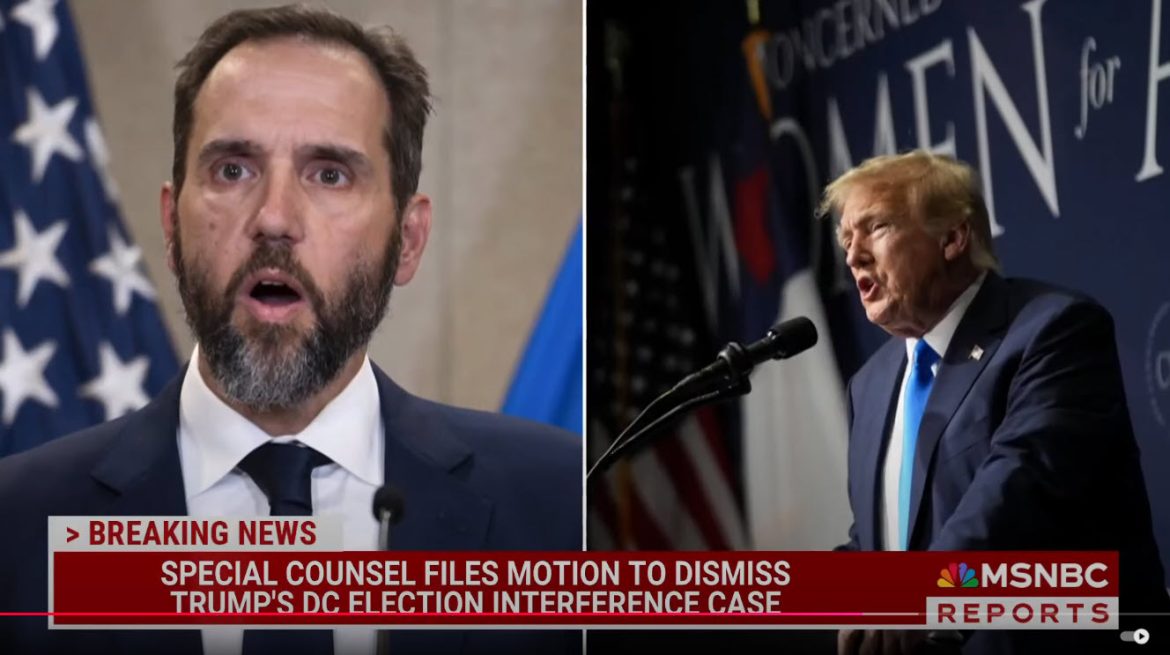In a landmark decision, the Special Counsel overseeing President-elect Donald Trump’s federal election interference case files a motion to dismiss all charges, marking a dramatic turn in the legal battle stemming from the 2020 presidential election. The charges, which included felony allegations related to Trump’s alleged attempts to overturn the election results, faced significant legal challenges after the Supreme Court’s ruling earlier this year that Trump possessed partial presidential immunity for actions taken during his time in office.
The Supreme Court’s decision cast doubt on the prosecution’s case, asserting that certain actions taken by a sitting president might be shielded from legal scrutiny under constitutional immunity provisions. This pivotal ruling effectively weakened the foundation of the Special Counsel’s arguments, leading to today’s motion to dismiss. Legal experts widely agree that the Supreme Court’s interpretation made it exceedingly unlikely that the charges would result in a conviction.
Trump and his legal team celebrate the motion as a victory, reiterating their claims that the former president has been unfairly targeted in what they describe as a politically motivated prosecution. “This decision is not just a vindication for President Trump but also for the office of the presidency itself,” a spokesperson for Trump’s legal team states, calling for an end to what they term “a baseless legal pursuit.”
Special Counsel Jack Smith’s filing to drop the charges draws mixed reactions. Supporters of Trump view the move as long overdue, while critics argue that it sets a concerning precedent about the limits of presidential accountability. Former federal prosecutor Paul Butler predicts that Trump will likely never face these specific charges again, highlighting the far-reaching implications of the immunity ruling.
While the dismissal brings closure to the election interference case, attention now shifts to other legal challenges Trump faces, including an ongoing investigation into his alleged mishandling of classified documents. It remains unclear whether Smith will move to dismiss charges in that separate case, which revolves around allegations that Trump improperly stored sensitive government materials at his private residence post-presidency.
The dropping of the charges also reignites broader debates about the intersection of presidential power, accountability, and the judicial system. Legal scholars warn that the immunity ruling could open new legal and constitutional questions about the scope of presidential actions and the potential for abuse of power.
Trump’s supporters hail the motion as a sign of resilience against what they perceive as a politically biased justice system. Meanwhile, critics and opposition figures express frustration, arguing that the decision could embolden future leaders to test the limits of executive power.
As Trump continues to campaign for a return to the White House in 2024, the dismissal of these charges removes a significant legal obstacle. However, with other investigations still looming, the legal challenges for the former president are far from over.



